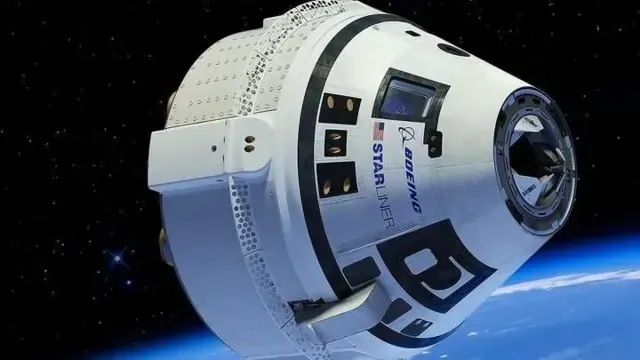The crew, comprised of astronauts Butch Wilmore and Suni Williams, was already positioned inside the Starliner spacecraft when the decision to halt the countdown was made. The issue centered on the Atlas rocket, operated by the United Launch Alliance (ULA), rather than Boeing's spacecraft itself.
According to reports from NASA officials, flight engineers observed abnormal behavior in the oxygen relief valve, prompting the decision to abort the launch. The valve was rapidly opening and closing in the moments leading up to liftoff, raising concerns about its operational integrity.
As Boeing and ULA work diligently to address the issue, the focus remains on ensuring the safety and reliability of the mission. Engineers are currently analyzing data to assess the extent of the valve's wear and determine if replacement is necessary. ULA has expressed confidence in its ability to replace the valve swiftly, potentially allowing for a new launch attempt in the near future.
In a statement on social media, Boeing indicated that the soonest a rescheduled launch could occur is Friday, underscoring the company's commitment to prioritizing safety above all else. NASA Chief Bill Nelson echoed this sentiment, emphasizing that safety is paramount in all space missions.
"Standing down on tonight's attempt to launch," tweeted Nelson. "As I've said before, @NASA's first priority is safety. We go when we're ready."
Boeing's aspirations to become a key player in crewed space missions have been met with several challenges and setbacks along the way. The Starliner spacecraft, initially slated for an uncrewed test flight in 2015, faced numerous delays before finally launching in 2019. However, this inaugural flight was marred by software glitches, leading to an internal clock malfunction and excessive fuel consumption.
Subsequent attempts to launch the Starliner were further delayed, with an August 2021 planned launch pushed back to May 2022 due to propulsion system issues. Despite these hurdles, Boeing remained steadfast in its commitment to achieving success in crewed space missions.
Elon Musk's SpaceX, Boeing's main competitor in the commercial spaceflight sector, made history in 2020 by becoming the first private company to transport astronauts to the ISS. This milestone marked a significant achievement in reducing American reliance on Russian space rockets and paved the way for other companies, including Boeing, to follow suit.
Boeing's Starliner spacecraft aims to provide a reliable alternative for crew transport to the ISS, offering redundancy and flexibility in NASA's spaceflight capabilities. However, the recent delay underscores the inherent challenges and complexities of space exploration, where even the smallest technical issue can have significant implications.
Despite the setback, Boeing remains optimistic about the future of its crewed space missions. The company is committed to addressing any issues promptly and ensuring the safety and success of its upcoming launches.
As the space industry continues to evolve and expand, competition between companies like Boeing and SpaceX will drive innovation and advancement in space exploration. With safety as the top priority, these companies are poised to usher in a new era of human spaceflight, inspiring future generations to reach for the stars.

